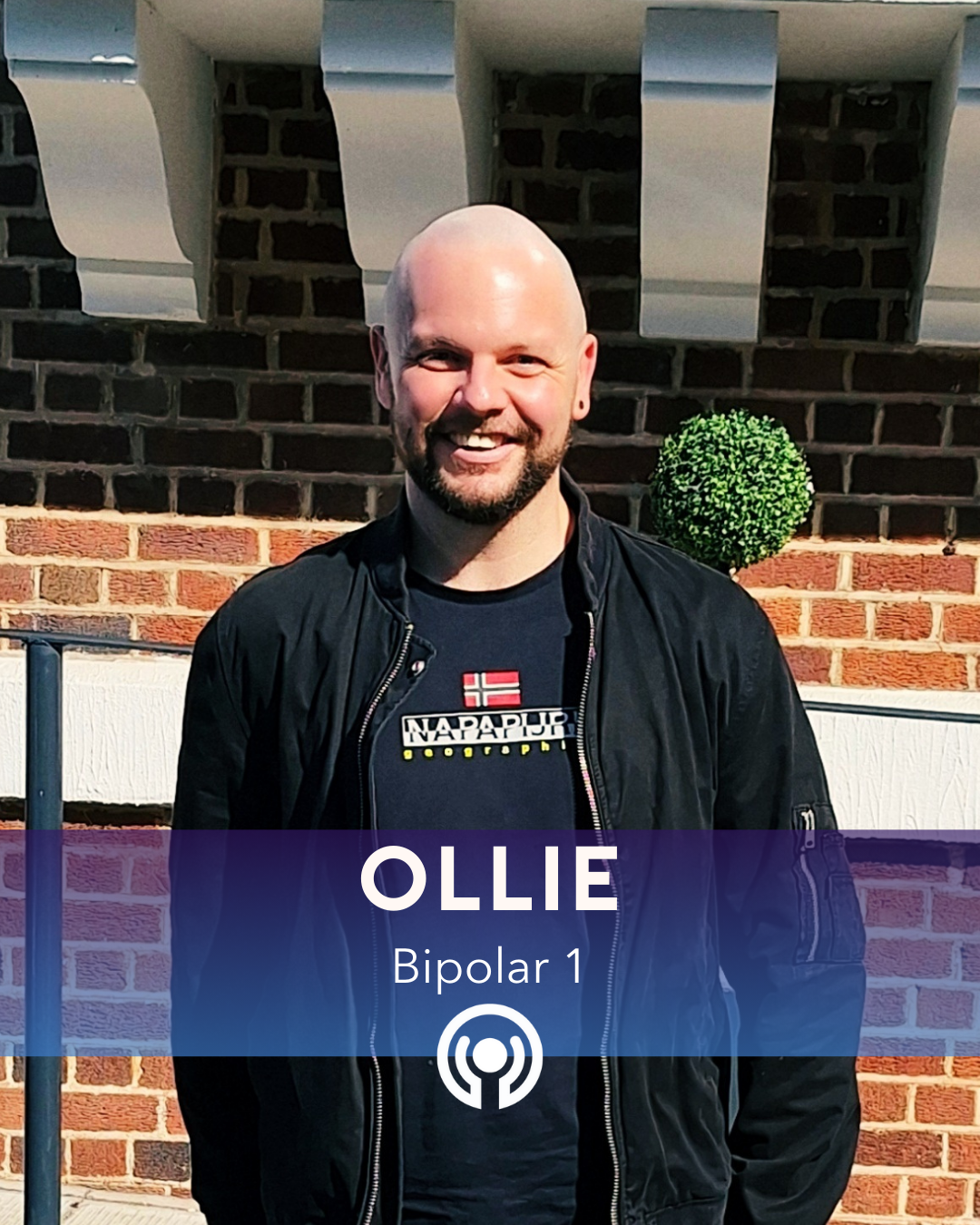Mental Health Awareness Month
Mental Health Awareness Month Toolkit
Mental Health Awareness Month was established in 1949 to increase awareness of the importance of mental health and wellness in all walks of life and to celebrate recovery from mental illness. Within our toolkit you will find lived experience blogs, webinars, stories of hope and recovery, clinical resources, and more! Learn valuable wellness tips, shared strengths and understand how vulnerability can improve your wellness too!
May Blogs
The Little Things That Change Everything – I was nine years old when six-time Olympic medalist Clara Hughes stopped in my town on the final days of her cross-Canada bicycle tour – an initiative with a goal of starting conversations and ending the stigma surrounding mental health.
Own it, then Learn, Fight, Win! -WIN – Create a recovery that’s built to last! – build your new life – manage your condition day by day – choose to adopt an ATTITUDE OF GRATITUDE in all circumstances, especially when times are hard. Own your condition – then Learn, Fight, and Win!
Coming Out About My Diagnosis: How I Decided Who to Tell and When – When I was diagnosed with bipolar disorder, there were certain people I had to inform. With some individuals, the decision wasn’t really mine to make. My parents, my girlfriend, my boss, and those who witnessed my manic episode needed to…
Bipolar, My “Friend” by Gregg Martin – Dear Bipolar Friend: I never asked for or wanted you in my life — but you wanted me. I wouldn’t wish you on anyone, but… after much pain, you have ended up being a blessing.
Why I Advocate: Bringing Comfort to an Uncomfortable Topic – In 2011, I experienced my most devastating manic psychosis. To speak my truth, I didn’t expect to survive that episode. It changed me as a person. It was a traumatizing period for me and for those who loved me. I had already experienced mania and depressive episodes with psychotic features at the time of my diagnosis at nineteen.
Advocating for Justice and Care – Advocacy demands a multifaceted approach that prioritizes mental health support and ensures consistent access to necessary medications. This vulnerable population often faces a variety of challenges, where the complexities of their mental illness cross-over with law enforcement, courts, and correctional facilities.
Friends Made, Friends Lost, and the Person I Found – For most of my life in high school and college, I made friends with my undiagnosed bipolar disorder in the driver’s seat. Therefore, when I got my diagnosis, I couldn’t be the fun, energetic, and laughable person I once was. This was not a bad thing.
Bipolar Disorder: A Candid Q & A With My Spouse (Part 1) – Navigating marriage with bipolar disorder (BD) is a journey of love, resilience, and continuous learning. Bipolar disorder can add unique challenges as well as hardships to a relationship, but with open communication, mutual…
Bipolar Disorder: Strategies for Connection, Communication, and Care (Part 2) – Understanding bipolar disorder (BD) as a couple is not just managing a diagnosis – it’s about building a life together with greater compassion, flexibility, and love. As this blog is a follow up to my candid Q & A with my spouse, the…
Webinars
Social and Environmental Variables as Predictors of Mania – Why do manias happen when they do? Genetics tell us something about who is likely to experience a manic episode, but why does a given…
Evaluation and Management of Older-Age Bipolar Disorder – Older Age Bipolar Disorder (OABD) is a term that is used to describe bipolar disorder (BD) occurring amongst individuals ≥50 years of age. Evidence indicates that OABD accounts for a quarter of all cases of BD. When compared to individuals with early-onset BD, individuals with OABD have a greater association with cerebrovascular disease and other neurological disorders, less family history of mood disorders…
Embracing Neurodivergence as a Strength and Reframing Mental Health Narratives – Nacho Ruiz Hen’s powerful talk challenges society’s perception of neurodivergence, particularly bipolar disorder and ADHD, arguing that these conditions should be recognized as strengths rather…
Faces of Hope and Recovery

Ollie
Bipolar I
Don’t be afraid of the diagnosis. It sounds scary, and at times it can be, but the support, help, advice, and information on the condition are readily available for free. Mental Health is not the taboo subject it once was; employers are more informed and supportive, and your friends and family will still be there by your side. Bipolar Disorder does not define you. It gives you attributes that you didn’t know you had. And if you are struggling with it, remember help is there and always will be, you are not alone and never will be.

Matt
Bipolar I
“Since routine is a big part in managing bipolar, it can feel like I am just going through the motions. That’s often why I turn to creativity as a way to feel more alive.
There is a flow state I can achieve when I follow creative ideas to completion. It makes me feel like I’ve channeled a bit of grandiosity into meaningful work, even if small in scale. It can ground me, as I feel relief and a sense of purpose I may not find elsewhere.”

Sapphire
Bipolar I
“In the depths of depression, when hope felt out of reach, I came across mindfulness. At my lowest, with nowhere else to go, I started taking small steps forward. Slowly, the climb began. Meditation became my lifeline, my daily practice, and within it, I discovered a simple yet transformative visualization.
I was taught to imagine each thought as a droplet of water falling onto a leaf, which then drifted along a stream until it disappeared into the vast expanse of a tranquil lake. Each thought dissolved, momentarily freeing my mind. And though another thought would inevitably arise, it would be new, different. In those fleeting moments of stillness, I found peace.
Additional Resources
Patient and Family Guide to the CANMAT and ISBD Guidelines on the Management of Bipolar Disorder – This guide aims to promote a more consistent collaboration between patients, their families, and healthcare professionals so that informed decisions can be made based on the latest information about treatment. Healthy Living with Bipolar Disorder – In this free book you’ll find clinical information from psychiatrists, nurse practitioners, psychologists, therapists, social workers, and others. You will also find stories from real people who share how they survive and thrive with bipolar disorder!
Gregg’s Corner
Gregg Martin is a 36-year Army combat veteran, retired 2-star general, and bipolar survivor, thriver, and warrior. He is a qualified Airborne-Ranger-Engineer and Strategist. He holds a Ph.D. and two Masters degrees from MIT, and a Bachelors degree from West Point. He is a father of three sons, author, and speaker who lives with his wife in Cocoa Beach.
Do I have Bipolar Disorder?
The Mood Disorder Questionnaire – The Mood Disorder Questionnaire (MSQ) was developed by a team of psychiatrists, researchers, and consumer advocates to address the need for timely and accurate evaluation of bipolar disorder. This questionnaire is not intended to replace the opinion of a healthcare professional.
Signs of Bipolar Disorder
Bipolar disorder, formerly known as manic-depressive illness, is a brain disorder that causes unusual shifts in a person’s mood, energy, and ability to function. Different from the normal ups and downs that everyone goes through, the symptoms of bipolar disorder are severe. Bipolar disorder typically develops in late adolescence or early adulthood. However, some people have their first symptoms during childhood, and some develop them late in life. It is often not recognized as an illness, and people may suffer for years before it is properly diagnosed and treated. Here is good news: bipolar disorder is very treatable, and people with this illness can lead full and productive lives.
- Increased energy, activity, and restlessness
- Excessively “high,” overly good, euphoric mood
- Extreme irritability
- Racing thoughts and talking very fast, jumping from one idea to another
- Distractibility, can’t concentrate well
- Little sleep needed
- Unrealistic beliefs in one’s abilities and powers
- Poor judgment
- Spending sprees
- A lasting period of behavior that is different from usual
- Increased sexual drive
- Abuse of drugs, particularly cocaine, alcohol, and sleeping medications
- Provocative, intrusive, or aggressive behavior
- Denial that anything is wrong
A manic episode is diagnosed if elevated mood occurs with three or more of the other symptoms most of the day, nearly every day, for 1 week or longer. If the mood is irritable, four additional symptoms must be present.
- Poor appetite or eating too much
- Trouble sleeping or sleeping too much
- Nervousness and worry
- Loss of interest in and withdrawal from usual activities
- Feelings of sadness that don’t go away
- Irritability or restlessness
- Lack of energy
- Feelings of sadness, worthlessness or guilt
- Inability to think or concentrate
- Repeated thoughts of death or suicide
- Chronic pain or other physical problems that don’t respond to treatment
- Increased risk-taking behavior, including reckless driving or substance abuse
You Can Lead a Stable, Happy, and Healthy Life with Bipolar Disorder!
Living with bipolar disorder isn’t easy, but there are resources available that can help you manage and cope with symptoms, prevent and rebound from mood episodes, and help you achieve your wellness goals. We are here to help and to provide you with information for you to learn more about living with bipolar disorder.
